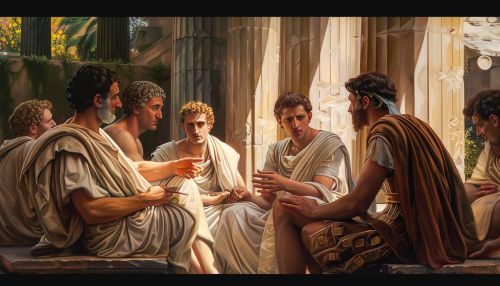Mathematical Logic
Introduction
Mathematical logic, also known as symbolic logic, is a subfield of mathematics that explores and applies formal systems, proof theory, model theory, and recursion theory. It is a fundamental discipline that underpins the foundations of mathematics, computer science, and philosophy.
History
Mathematical logic has its roots in the works of ancient Greek philosophers such as Aristotle, who developed the concept of deductive reasoning. However, the modern field of mathematical logic only began to take shape in the 19th century with the works of mathematicians like George Boole and Gottlob Frege.


Formal Systems
A formal system in mathematical logic is a set of axioms together with a set of inference rules. The most common formal systems include propositional logic, first-order logic, and higher-order logic. These systems are used to represent mathematical proofs and computations in a formal way.
Propositional Logic
Propositional logic, also known as Boolean logic, is the simplest form of logic where statements are either true or false. It involves operations such as conjunction (and), disjunction (or), and negation (not).
First-Order Logic
First-order logic extends propositional logic by introducing quantifiers, which allow for the expression of statements about all or some members of a set. It is the standard form of logic used in most areas of mathematics.
Higher-Order Logic
Higher-order logic extends first-order logic by allowing quantification over sets of entities, rather than just individual entities. This allows for more expressive power but also introduces additional complexity.
Proof Theory
Proof theory is the branch of mathematical logic that represents proofs as formal mathematical objects, facilitating their analysis by mathematical techniques. Proofs are typically represented in a formal system using a sequence of statements, each of which is either an axiom or follows from the preceding statements by an inference rule.
Model Theory
Model theory studies the relationships between formal systems and their interpretations, or models. A model of a formal system is a structure that satisfies the axioms of the system. The study of models provides insights into the properties of the formal system and its potential applications.
Recursion Theory
Recursion theory, also known as computability theory, investigates what can be computed in principle. It provides the theoretical underpinnings for computer science, particularly the theory of computation and complexity theory.
Applications
Mathematical logic has wide-ranging applications in various fields. In mathematics, it is used to prove theorems and analyze mathematical structures. In computer science, it is used in the design and analysis of algorithms, programming languages, and formal verification. In philosophy, it is used in the analysis of philosophical arguments and the foundations of mathematics.
